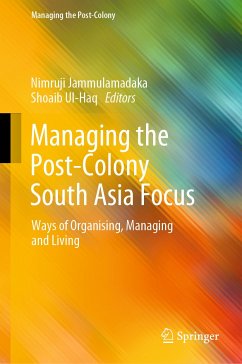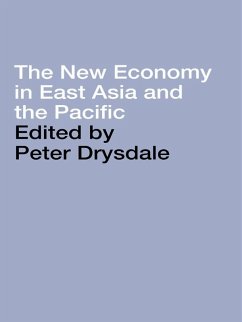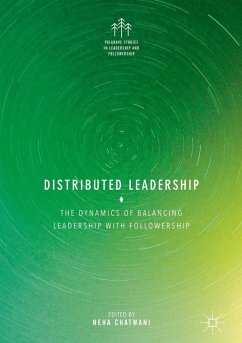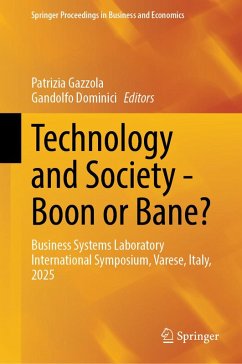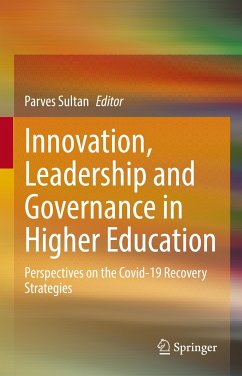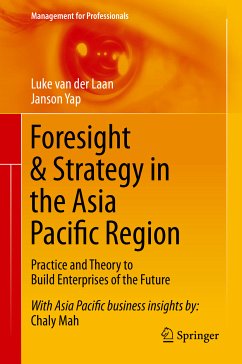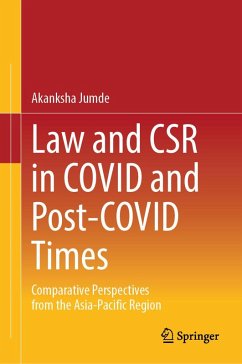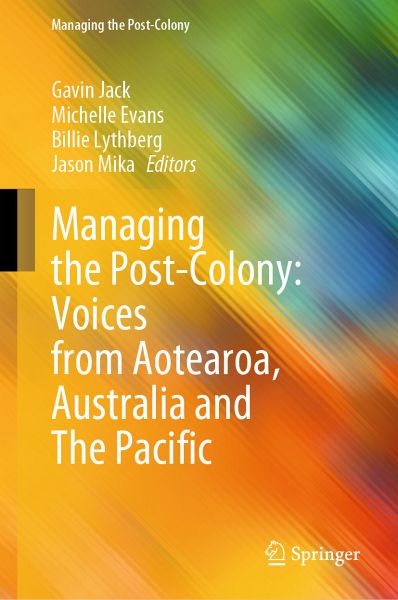
Managing the Post-Colony: Voices from Aotearoa, Australia and The Pacific (eBook, PDF)
Versandkostenfrei!
Sofort per Download lieferbar
136,95 €
inkl. MwSt.
Weitere Ausgaben:

PAYBACK Punkte
68 °P sammeln!
This edited book is the second in the book series "Managing the Post-Colony". The book series is co-edited by Nimruji Jammulamadaka (IIM Calcutta, India) and Gavin Jack (Monash University, Australia). The book series seeks to present cutting-edge, critical, interdisciplinary, and geographically and culturally diverse perspectives on the contemporary nature, experience, and theorisation of managing and organising under conditions of postcoloniality.This book specifically presents voices and perspectives from Aotearoa New Zealand, Australia, and The Pacific, locations with shared and distinctive...
This edited book is the second in the book series "Managing the Post-Colony". The book series is co-edited by Nimruji Jammulamadaka (IIM Calcutta, India) and Gavin Jack (Monash University, Australia). The book series seeks to present cutting-edge, critical, interdisciplinary, and geographically and culturally diverse perspectives on the contemporary nature, experience, and theorisation of managing and organising under conditions of postcoloniality.
This book specifically presents voices and perspectives from Aotearoa New Zealand, Australia, and The Pacific, locations with shared and distinctive histories and present-day experiences of colonisation and imperialism. Ways of managing, organising, and doing business in these places demonstrate cultural continuity and change in such histories, present sites of postcolonial struggle, and diverse prospects for self-determined future-making.
The book explores struggles and prospects of managing in the post-colony through qualitative empirical cases, historical and legal studies, conceptual essays and provocations, and interviews with Indigenous business leaders. It contributes to the ongoing diversification, provincialisation, and decolonisation of management and organisation studies and practice.
A strong focus is placed on diverse Indigenous knowledges and experiences, including those of Aboriginal and Torres Strait Islander, Pasifika, and Maori peoples, and insights into the capacity for Indigenous culture-specific modes of business to offer decolonising futures.
This book specifically presents voices and perspectives from Aotearoa New Zealand, Australia, and The Pacific, locations with shared and distinctive histories and present-day experiences of colonisation and imperialism. Ways of managing, organising, and doing business in these places demonstrate cultural continuity and change in such histories, present sites of postcolonial struggle, and diverse prospects for self-determined future-making.
The book explores struggles and prospects of managing in the post-colony through qualitative empirical cases, historical and legal studies, conceptual essays and provocations, and interviews with Indigenous business leaders. It contributes to the ongoing diversification, provincialisation, and decolonisation of management and organisation studies and practice.
A strong focus is placed on diverse Indigenous knowledges and experiences, including those of Aboriginal and Torres Strait Islander, Pasifika, and Maori peoples, and insights into the capacity for Indigenous culture-specific modes of business to offer decolonising futures.
Dieser Download kann aus rechtlichen Gründen nur mit Rechnungsadresse in A, B, BG, CY, CZ, D, DK, EW, E, FIN, F, GR, HR, H, IRL, I, LT, L, LR, M, NL, PL, P, R, S, SLO, SK ausgeliefert werden.



